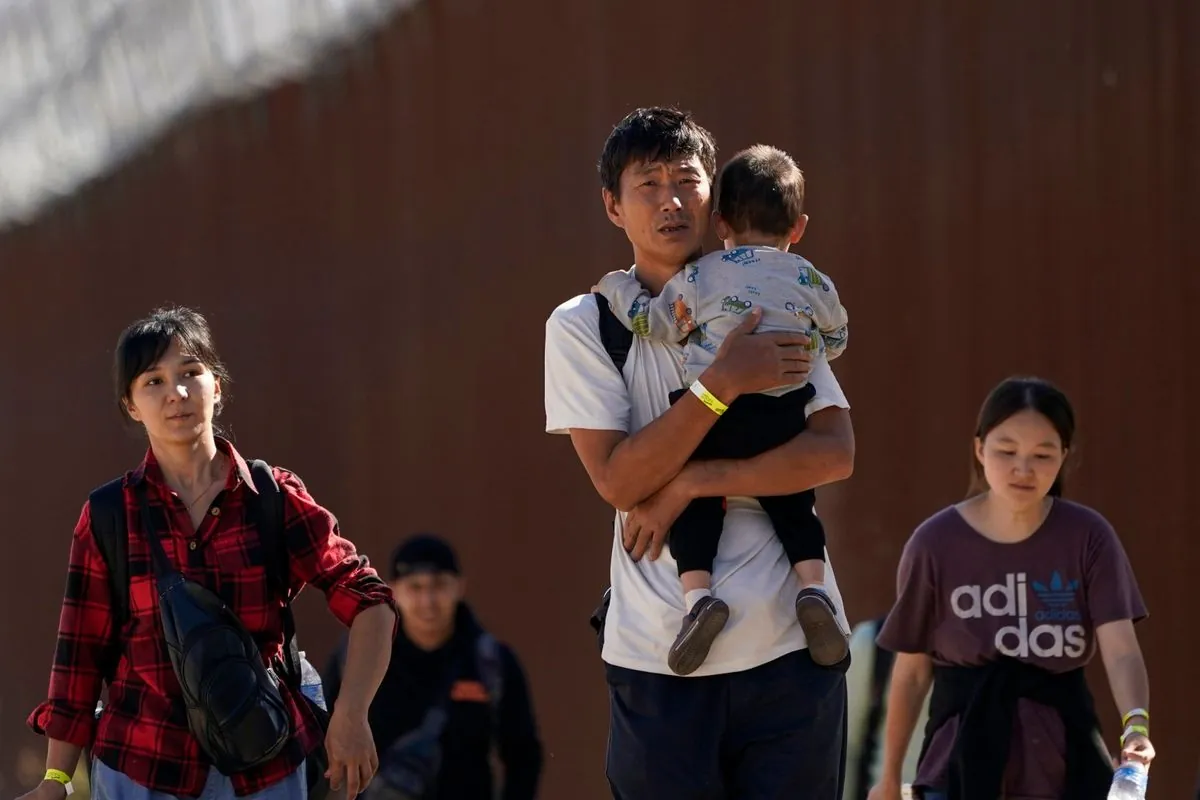US-China Deportation Deal: A Fragile Cooperation Amid Rising Migration
The US and China have reached an agreement on deportation, marking a rare instance of cooperation amid tensions. This deal comes as Chinese migration to the US surges, raising political and security concerns.

In a significant development, the United States and China have reached an agreement on the deportation of Chinese nationals, marking a rare instance of cooperation between the two global powers. This June, the US successfully repatriated hundreds of Chinese citizens who were found to be in the country illegally, potentially resolving a long-standing dispute between the nations.
The agreement comes amid a substantial increase in Chinese migration to the United States. During the 2023 fiscal year, over 24,000 Chinese migrants illegally crossed the US southern border, a stark contrast to the fewer than 15,000 who did so in the previous decade combined. This surge is part of the "zouxian" or "walk the route" movement, driven by economic challenges, COVID-19 lockdown repercussions, and political repression in China.

The journey for these migrants often involves a perilous route through South America and Central America, including traversing the notorious Darién Gap, a treacherous jungle region between Colombia and Panama. This new wave of migration differs from the traditional pattern of wealthy and educated Chinese immigrating through legal channels.
The deportation agreement has significant political implications for both nations. For Beijing, the exodus of citizens has been embarrassing, prompting efforts to censor discussions about "runxue" or "the art of running away" on social media. The Chinese government views the deportations as a deterrent to further migration.
"The authorities have repatriated the planners and organizers of smuggling activities and illegal immigrants to their original places of residence."
For the United States, the influx of Chinese migrants has raised national security concerns, particularly among Republican lawmakers. Former President Donald Trump has even suggested that these migrants could "build a little army" in the US, tapping into existing far-right rhetoric.
The cooperation on deportation coincides with a gradual improvement in US-China relations since the meeting between US President Joe Biden and Chinese leader Xi Jinping at the Asia-Pacific Economic Cooperation (APEC) summit in November 2023. However, experts caution that this cooperation may be short-lived, especially if there's a change in US leadership.
The deportation process faces several challenges. As of November 2023, approximately 100,000 Chinese migrants in the US were subject to final orders of removal. Many migrants lack valid travel documents, and China has cited the need for time-consuming citizenship verification as a reason for delays.
The consequences for deportees returning to China remain unclear, but reports suggest they may face fines, detention, exit bans, and passport confiscation. Meanwhile, some Chinese migrants in the US have reportedly stopped reporting to immigration authorities out of fear of deportation.
As the US and China navigate this complex issue, the future of their cooperation on deportation remains uncertain. The agreement represents a delicate balance between addressing mutual concerns and maintaining strategic interests in an era of fierce competition between the two global powers.


































